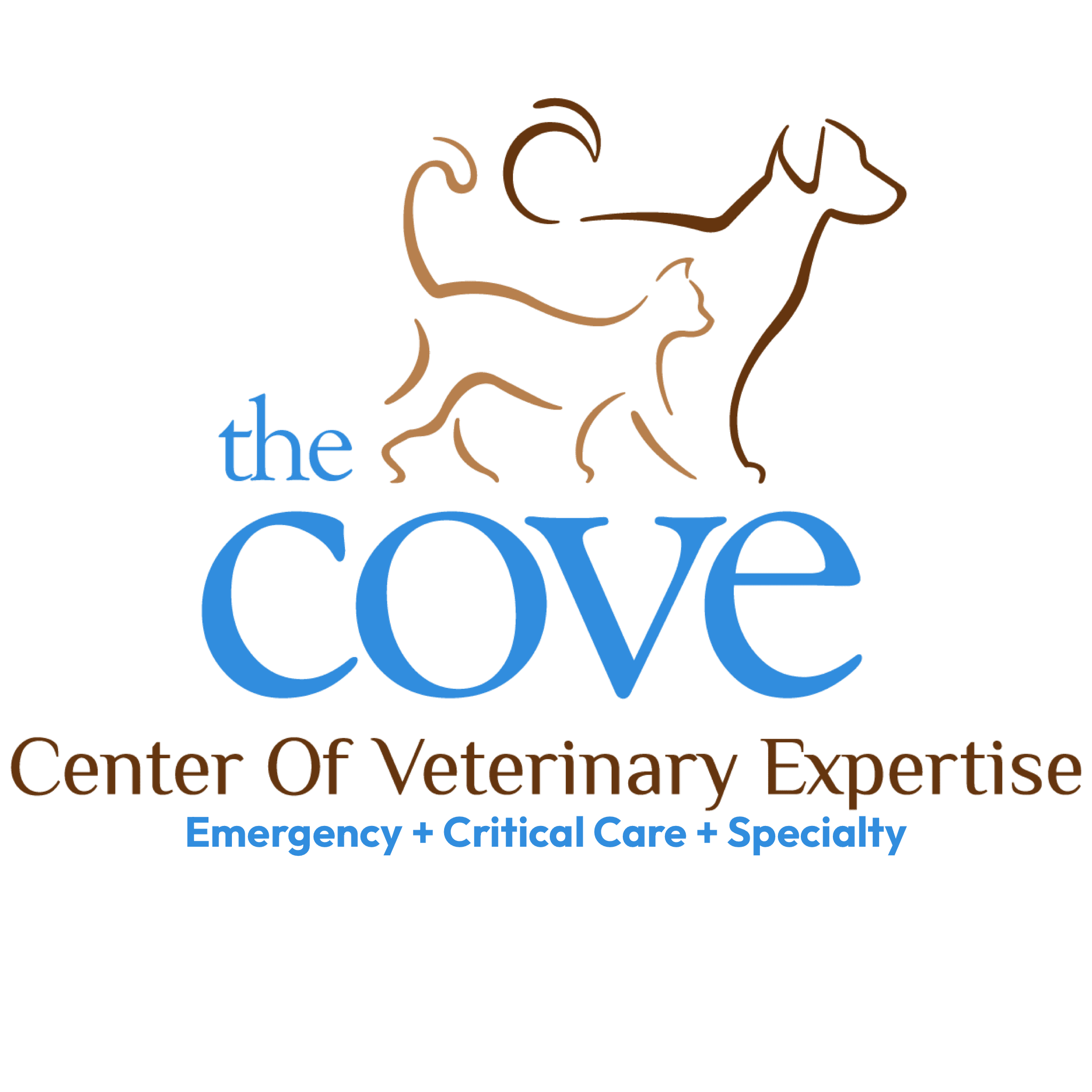By Danielle Martin, LVT, VTS (Dentistry)
Sampson Creekmore is an 11-year-old cat whose story provides a perfect example of how team members from different veterinary specialties can work together to provide complete health care for furry family members. Here at The COVE, members of our cardiology and dentistry teams often collaborate on patient care. While the overlap may not make sense at first glance, Sampson’s case illustrates just how intertwined they can be.
Sampson originally came to The COVE in 2017 to see our board-certified veterinary cardiologist, Merrilee Small, DVM, DACVIM (Cardiology), because he experienced low blood pressure while under anesthesia for a dental procedure at his primary care veterinarian’s clinic. This meant the procedure had to be halted, and could not be fully completed. Sampson also had a heart murmur. Dr. Small diagnosed likely early-stage cardiomyopathy, a common feline heart condition characterized by a thickening of the heart muscle. When diagnosed early, it can often be managed with medication.
In 2018, Sampson’s cardiac recheck with Dr. Small revealed his heart disease was stable, so the Creekmore family decided they were ready for Sampson to have a dental consultation with The COVE’s Colleen Fox, DVM, CSAVP Dentistry. At that visit, Sampson was diagnosed with tooth resorption, a condition where the cat’s body erodes the surface of the tooth, leading to painful lesions.
More than half of all cats over the age of 3 have at least one tooth affected by resorption. These defects in the outer surface of the tooth, often right at the gum line, are progressive and painful as they expose the sensitive dentin and pulp. A thorough oral examination, including dental X-rays, is necessary to evaluate all the teeth, as cats are prone to have multiple resorptive lesions. Surgical extraction of the affected teeth is the only treatment option, which is what was recommended for Sampson.
To avoid any problems with anesthesia this time, our cardiology team helped craft a customized anesthetic protocol just for Sampson. When his pre-anesthetic blood work was reviewed before the scheduled dentistry procedure, we got another surprise – Sampson had diabetes! The dentistry procedure was postponed so that Sampson’s primary care veterinarian could get his diabetes under control. A few months of treatment later, the procedure was rescheduled, and Sampson’s tooth extractions were safely and fully completed.
In March 2021, the Creekmore family again reached out to The COVE because Sampson was pawing at his face. Upon examination, Dr. Fox discovered another tooth affected by resorption. Following another cardiac recheck to confirm anesthesia was still a safe option for him, a second dentistry procedure was scheduled.
On March 24, Sampson went under general anesthesia for a second time, and our dental team confirmed that his right mandibular third premolar was affected by tooth resorption. The tooth was surgically extracted, and Sampson was sent home that day with a prescription for pain mediation and instructions to feed soft food until his recheck oral examination. Eight days later, Sampson’s checkup revealed that his mouth had fully healed.
Any time tooth resorption is diagnosed, there is a high incidence of additional resorptive lesions occurring. So it was recommended that in addition to his annual follow-ups with the cardiology team, Sampson should continue to have annual oral examinations, either with the dentistry team at The COVE or with his primary care veterinarian.
The Creekmore family also has another cat, Smudge, who also visits our cardiology and dentistry services. Regular checkups with both can help uncover any problems as soon as they emerge so that both Sampson and Smudge can have good outcomes from early treatment.
For questions or to schedule a consultation with our cardiology, dentistry, or other veterinary specialty services, call The COVE at 757-935-9111.
About Us
The COVE’s veterinarians and staff wholeheartedly embrace the core values of community, collaboration, commitment, compassion, and integrity. This focus ensures that pets, the people who love them, and their primary care veterinarians have as positive and affirming a healthcare experience as possible, regardless of the circumstances that bring us all together.


